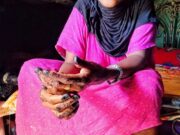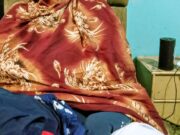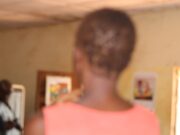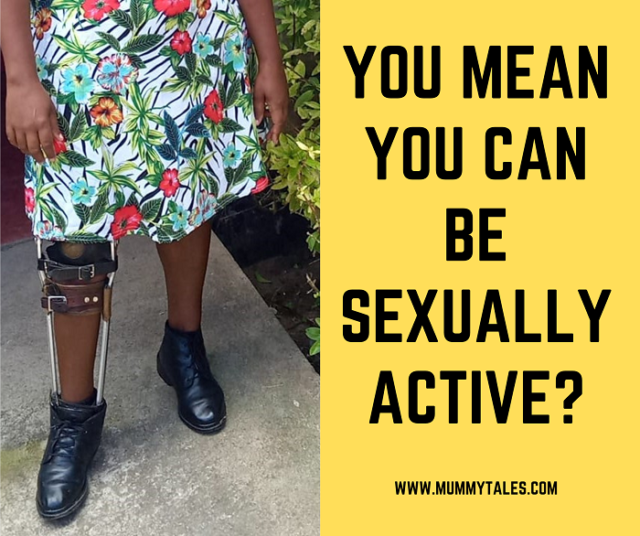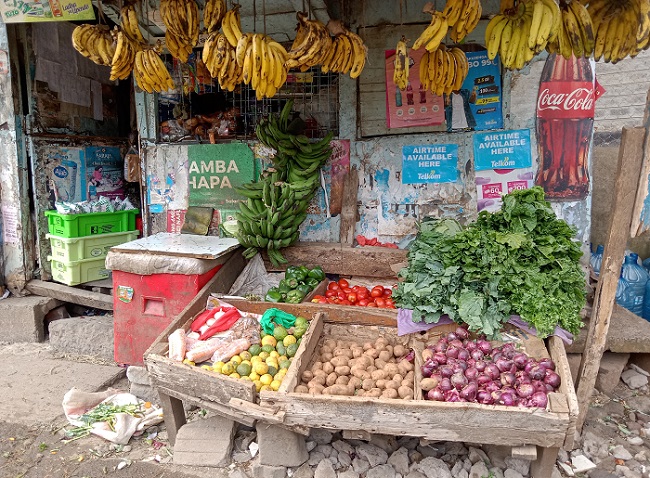By Maryanne W. Waweru l maryanne@mummytales.com
For many persons with disability, they often must deal with the reality of a huge section of society that stereotypes them as people who have no sexual desires, are asexual and are not deserving of intimacy and sexual pleasure. In this article, I share the experiences of three women who have faced prejudice regarding their sexual health, on account of their disabilities.
Margaret, 27, is from Thika, Kiambu County. She holds a Diploma in Human Resources management and is currently unemployed. Margaret has a physical disability –she has short arms and fingers. She, just like other young, healthy women of reproductive age goes through the normal ups and downs of dating and enjoys an active sexual life.
To prevent an unplanned pregnancy or contracting a sexually transmitted infection (STI) from her sexual partners, Margaret alternates between using condoms and the morning-after pill –depending on the man she’s with at that time. She prefers these contraceptive options as they are affordable and easily accessible.
The shocked Pharmacy Assistant
Margaret recalls an incident where she once needed to purchase the morning after pill. She walked to a pharmacy in Thika town and found an acquaintance of hers behind the counter. When she told him she needed emergency contraception, his reaction baffled her.
“He was surprised by my enquiry, confessing to never having thought of me “engaging in that kind of activity” (referring to sex). He unashamedly told me that because of my disability, he thought I was a virgin and couldn’t believe that I was sexually active. While he had placed me high up in his moral bar code, the look on his face left me with no doubt that I had dropped down it with a thud. I felt disappointed in him because as a medic, he should know better,” says Margaret.
Also read: The menstruation experiences of women and girls with disability in Kenya
What bothered Margaret most is that if a well-educated professional healthcare worker could have such an attitude, what of the common mwananchi?
When the Pharmacy Assistant got over his shock and began dispensing the pill to her, Margaret decided to educate him.
“At that time, I was 22 years old and in college. I told him that I was a fully grown woman with sexual desires and with the need for sexual satisfaction,” she says.
The shopkeeper
That, however, is not the only person that Margaret has had to explain her sexual activity to –something she believes she doesn’t need to do in the first place.
“There’s a time I went to my local shop and while there, I received a phone call from my best friend. Since I knew it would be a long conversation, I proceeded to sit on a bench adjacent to the shop. I narrated to my best friend about my visit to my boyfriend’s place the previous night, and how I had returned home that morning. I was excited as I talked to her –it was nothing unusual, just the normal banter that excited girls engage in with their best friends.”
What Margaret didn’t know is that the shopkeeper had eavesdropped on the conversation. She found this out when she went to buy something from the shop a few days later, when the shopkeeper told her she had a burning issue she wanted to discuss with her.
“The woman told me that she had overheard my phone conversation with my friend and wanted to find out if it was really true that I had a boyfriend, and if I had spent the night with him. She told me that eavesdropping on my conversation had left her very disturbed as the details I had narrated about my boyfriend didn’t sound like things I was capable of. Disappointed, she said that she’d always thought of me as a ‘nice, innocent girl’.”
In response, Margaret told her that despite her disability, she was a young woman with a well-functioning reproductive health system, so there was nothing unusual about her having a lover.
“She herself was my agemate and already a mother, and I challenged her about why she thought it was odd that I too could be sexually active. I took time to help her understand that persons with disabilities can also enjoy sex. In disbelief, she asked me lots of questions about how disabled people have sex, which I was patient enough to answer.”
Belinda’s story
Margaret’s story is similar to that of 27-year-old Belinda, who is an amputee and sexual reproductive health and rights (SRHR) advocate.
One day, after a community outreach activity where she and her team had distributed condoms to youth, she proceeded to a health facility to enquire about family planning services. She still had some condoms left in her bag.
When her turn arrived to go into the nurse’s room, she stood up. The nurse was standing at the door. However, something unexpected happened.
“As I stood, I forgot to close my bag and so all the contents spilled out. Many condom packets scattered on the floor. There were several people in the waiting area and as I collected them from the floor, I heard the nurse yell out: “you want family planning, yet you’ve filled your bag with condoms?”.
Belinda ignored the nurse’s remark and after she had returned all items in her bag, she began walking to the nurse’s room. But she didn’t expect the next words the nurse said to her.
“Haiya! Na kwanza wewe ni kiwete! (and you mean you are disabled?) As she said so, everybody in the waiting area stopped what they were doing to look at me. I felt so humiliated,” Belinda says, a forlorn look on her face.
Belinda says that the derogatory words from the nurse alluded to the fact that as a person with disability, she was not deserving of sexual activity or family planning services.
Also read: Why I put my teenage daughter on the contraceptive injection
It is this kind of unfair treatment by healthcare workers that prevents many women with disabilities from visiting clinics to access sexual reproductive health services, Belinda says.
“When I have conversations with my peers, they tell me of the many times they have been addressed in demeaning manners by some nurses. They do not expect women with disabilities to be having sex, and it shows in their attitude. They don’t even try to hide it,” she says.
While stereotyping, stigma and discrimination are issues they experience on an almost daily basis from society, Belinda says that they do not expect the same from healthcare workers.
“Such negative attitudes expose many women and girls with disabilities to various risks such as unplanned pregnancies and STIs, including HIV. As a result, they end up procuring clandestine abortions, many of which are unsafe and have led to death or life-long health complications for them. Others end up having many children whom they cannot care for,” she says.
Who made you pregnant?
33-year-old Christine, a woman with physical disability from Nairobi, shares her experiences as well.
When she found out she was pregnant seven years ago, Christine was hesitant about going to the clinic because of her peers’ experiences.
“My friends with disabilities had told me that when they went for the antenatal clinics, some nurses would ask them ridiculous questions such as ‘poor thing, which man did this to you? Who raped you? Did you report it to the police? Has he been apprehended? Or ‘why did you go laying down with a man, yet you know your body is complicated? Now look you’ve gotten yourself pregnant. Who will help you? Was it a must for you to have sex? Why do you want to add the extra burden of a child to your family, yet you’re already a burden to them? among other unkind remarks,” she says.
Christine adds that many people, including healthcare workers, assume that women with disabilities’ sexual activities are not consensual. That they are always raped or forced into it. It is lost on them that they too desire intimacy just like able-bodied women, and most can have sex and experience pleasure without any difficulty.
Also read: The curious case of the ‘midnight lovers’
It is these anxieties that made Christine delay her first antenatal clinic (ANC) visit, only doing so when she was 25 weeks pregnant. The World Health Organization (WHO) recommends pregnant women to have their first antenatal clinic visit in the first 12 weeks’ of pregnancy.
What surprised Christine most though, is her antenatal care experiences at a public health facility.
“I had very good experiences all through. I found nurses who treated me professionally. I had expected to go through negative experiences, but I was pleasantly surprised when I didn’t. I even regretted why I had not started my clinics early,” she says.
Christine is however quick to state that her positive experiences do not negate the negative ones that other women with disabilities have gone through.
Nurse Dinah
Dinah Akeyo Odoyo, 48, is a Nursing Officer at the Ledinah Community Medical Center, located in Homa Bay town, Homa Bay county in Kenya’s Nyanza region. In a career spanning 24 years, Dinah has served thousands of women, offering a wide range of sexual reproductive health services. She has attended to hundreds of pregnant women –including those with disabilities, and helped deliver hundreds of babies.
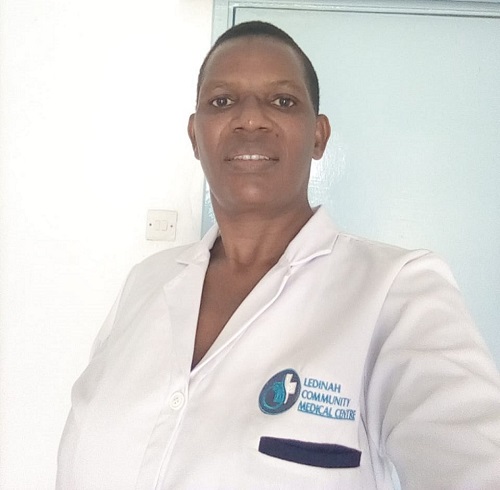
Dinah says that while indeed there are cases of women with disabilities who have received negative treatment from some healthcare workers, she says they are the exception, rather than the norm.
“Working as a healthcare worker is a calling, and most of us do it with so much passion. Unfortunately, there are those who may have been forced into the profession and it shows in their negative attitude. Such healthcare workers extend this mistreatment to all people –whether they have a disability or not.”
Dinah says that negative labels by society towards people with disabilities hinders many of them from seeking reproductive health services.
“For example, when a woman wheelchair user comes for family planning services, people stare at them, and you can tell they are judging them. It makes them feel bad to the extent they avoid returning for services. This is the feedback they give me when I follow-up with them,” she says.
Also read: Managing periods as a visually impaired woman: Eve Kibare’s story
Dinah says that though she has not gone through specific training about serving persons with disabilities, she has over the years learnt how best to attend to them.
“Communication is usually the greatest challenge for me, especially with women who are deaf. When they come for services, I must be creative. For example, when I ask them about their last menstrual period, I show them something that is color red. When I ask about their breasts, I touch mine so that they understand. Sometimes I use pictures or draw diagrams in my notebook to explain something to them. I also write down my questions, then give them the sheet of paper to write back their response. For those who cannot read or write, most come accompanied by either their sister, mother, cousin or close female friend who is able to help us communicate.”
Dinah says that the situation is better now than it was when she started out as a nurse over two decades ago.
“There is a lot more information today about the sexual reproductive health needs for women and girls with disability, unlike in yester years. This is because there has been a lot of sensitization in different health forums. Additionally, nowadays you see women with disabilities in the media articulating their issues and concerns when accessing reproductive health services, and this helps increase our knowledge about how to serve them better.
Also watch : I Didn’t Think Women Living with Albinism Got Pregnant
Dinah’s recommendation is for society to be more sensitized about the needs and rights of people with disabilities. This is because the stigma starts right from home and extends to their environments including the neighbourhood, schools, workplaces and hospitals.
“There is need for a socio-cultural shift in our society that will improve our attitudes and views about people with disabilities. They should not be judged for being sexually active. Why should people find that strange? It is also their right to receive quality sexual reproductive health information and services without any form of discrimination,” she says.
Dinah also calls for more targeted capacity building initiatives for healthcare workers, considering that their attitude and skills have a direct bearing on the uptake of services by persons with disabilities.
“When we change our attitudes, people with disabilities will be confident and will feel comfortable enough to express their sexuality and seek respective services. Nobody should infringe on their sexual reproductive health rights,” she says.
Do you have feedback on this article? Please e-mail me at maryanne@mummytales.com or comment down below.
 Mummy Tales is a platform dedicated to women and girl empowerment. Connect with Mummy Tales on: FACEBOOK l YOU TUBE l INSTAGRAM l TWITTER
Mummy Tales is a platform dedicated to women and girl empowerment. Connect with Mummy Tales on: FACEBOOK l YOU TUBE l INSTAGRAM l TWITTER














